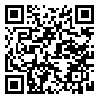BibTeX | RIS | EndNote | Medlars | ProCite | Reference Manager | RefWorks
Send citation to:
URL: http://jdisabilstud.org/article-1-2117-en.html
2- Professor, Department of Psychology, Payame Noor University, Tehran, Iran
Abstract
Background & Objectives: Vaginismus disorder is one of the sexual dysfunctions in women. In addition to suffering from emotional disorders such as depression and anxiety, women with vaginismus struggle with avoidant emotional regulation strategies, such as alexithymia and suppression of emotions, leading to aggravation of their symptoms and pain. Sexual activity has a decisive role in human health, and it seems that training in sexual skills can increase the quality of marital relationships. Considering the crucial role of psychological factors in vaginismus, as well as the positive effects of sexual skills training, treating patients with vaginismus using effective treatment approaches is necessary. This study aimed to determine the effectiveness of sexual skills training on sexual function and emotional dysfunction in women with vaginismus.
Methods: The research method was quasi–experimental with a pretest–posttest and follow–up design with a control group. The statistical population included all women with vaginismus in Tehran City, Iran, who were referred to the sexual health center affiliated with Imam Khomeini Hospital from April to June 2019. By available sampling method, 30 women with vaginismus were selected and randomly divided into experimental (n=15) and control (n=15) groups. The inclusion criteria were as follows: having vaginismus, being married for more than one year, having upper secondary education, being between 20 and 35 years old, lacking a history of neurological and mental illness and history of hospitalization, not taking substance abuse, being able to attend group therapy sessions and being willing to cooperate. The exclusion criteria for the experimental group were as follows: absence from attending intervention sessions for more than two sessions and unwillingness to continue attending intervention sessions. The study instruments included the Toronto Alexithymia Scale (Bagby et al., 1994) and the Female Sexual Function Index (Rosen et al., 2000). The experimental group underwent sexual skills training for 8 sessions, and the control group did not receive any intervention. Centrality and dispersion indices such as mean and standard deviation were used to describe the obtained data. Variance analysis with repeated measurements, Bonferroni post hoc test, and independent t test were used for data analysis in SPSS version 22 software. The significance level of the tests was set at 0.05.
Results: The results showed that the effects of time (p<0.001), group (p<0.001), and time × group interaction (p<0.001) on the variables of sexual function and alexithymia were significant. In the experimental group, sexual skills training significantly improved sexual function (p<0.001) and alexithymia (p<0.001) in the posttest and follow–up stages compared to the pretest, and this effect continued until the follow–up stage for variables of sexual function (p=0.105) and alexithymia (p=0.804).
Conclusion: Based on the findings of the study, sexual skills training is efficacious in improving sexual function and alexithymia in women with vaginismus.
| Rights and permissions | |
 |
This work is licensed under a Creative Commons Attribution-NonCommercial 4.0 International License. |



